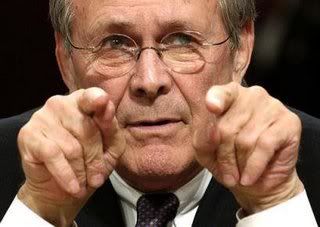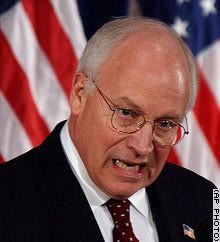The games were designed to test a program known as COG, Continuity of Government, and they concerned the ability of the government to continue to function during and after a nuclear attack. Everything about these exercises was secret. "There are seven levels of classification used in the government," one former senior Pentagon official told me when I raised the subject. "You are asking about the most secret level of all." Plans to enable the government to survive a nuclear attack dated back to the early days of the cold war, when vast bunkers were excavated in the countryside around Washington in which the various organs of government could take shelter. At least one of these, in the rural Virginia town of Culpeper, was even supplied with Barbie dolls for the diversion of officials' children sitting out the war underground. Over the years these efforts became ever more elaborate, and of course vastly more expensive. A major development occurred in the early 1980s, when Ronald Reagan was sold not only on the notion of a missile defense shield, but also on the practicality of fighting a prolonged strategic nuclear war, lasting up to six months. This decision lent added emphasis to the need for keeping the machinery of government going amid the radioactive ruins.Gee... nuclear wars, secret bunkers, shadow governments.... why does this sound so familiar?
[snip]
This highly secret program was known as Project 908, and among the individuals earmarked to take power when disaster struck was Donald Rumsfeld. Every so often he would disappear from his Chicago office, leaving no word of where he was headed, or why. Once off the map, he would be moved on a military transport to one of the secret headquarters created as part of the COG network.
[snip]
Rumsfeld loved these games. There were others who were frequent players in the exercises, notably Dick Cheney. "Cheney and the others often had other priorities," recalls the former Pentagon official. "Rumsfeld always came." He wasn't just trying to organize a devastated country. He was fighting World War III, or at least simulating what nuclear theory suggested such a conflict would be like.Herein lies an aspect of Rumsfeld's career -- and character -- that remained deeply buried even after word of his participation in the COG exercises leaked out. Faced with the most awesome choices a simulated environment could present, placed in a situation that was designed and advertised as a rehearsal for what might one day be terrifyingly real, Rumsfeld had one primary response. He always tried to unleash the maximum amount of nuclear firepower possible.
Sunday, February 25, 2007
Rumsfeld and Cheney loved to play post-nuclear shadow government games
With the Pentagon's assistance in deep bunkers from back in the cold war era:
Subscribe to:
Post Comments (Atom)


No comments:
Post a Comment